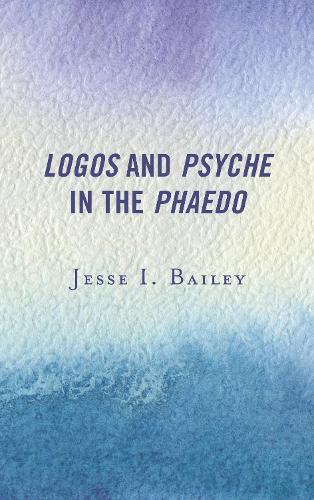
Logos and Psyche in the Phaedo
(Hardback)
Publishing Details
Logos and Psyche in the Phaedo
By (Author) Jesse I. Bailey
Bloomsbury Publishing PLC
Lexington Books
19th January 2018
United States
Classifications
Professional and Scholarly
Non Fiction
184
Physical Properties
Hardback
242
Width 161mm, Height 236mm, Spine 23mm
531g
Description
This book offers an original interpretation and close reading of Platos Phaedo, focusing on the relation between logos and the soul in order to illuminate the ethical and political dimensions of philosophy as care of the soul. Jesse I. Bailey argues that the central issue of the dialogue is the relation between logos and the defining activity of the soul. The soul, in accord with logos, gathers the multiplicity of phenomena into the intelligible wholes of experience. This definitive activity also applies to the soul itself, as the soul gathers itself to itself in logos. Ethical living demands the development of a harmonious unity in the self through this activity. Thus, the book argues that the traditional pillars of Platonismthe immortality of the soul and the Formsare presented not as fully-developed theories to be accepted by the reader whole cloth, but rather as provocations for thought.
Reviews
Over the last few decades, there has been a revolution in Plato interpretation, and in Logos and Psyche in the Phaedo, Jesse Bailey draws on some of the best of this scholarship to produce an original interpretation of the Phaedo. Platos philosophy, in place of the simplistic, other-worldly cartoon that is typically ascribed to him, is shown to be subtle and complex and focused on the practical realities of shared human life. Focusing on the dramatic framing of the conversation, Bailey offers provocative new interpretations of all the major arguments of the Phaedo, challenging the standard idea that they are intended as proofs of personal immortality. His argument culminates in Chapter 6, The Turn to Logos, in which Bailey shows that it is how we take account of thingsthe tales we tell ourselvesand especially how we interpret what is good, that is what ultimately brings about the unity (or lack thereof) of the soul and of the things of our world. We live in an inherently human worldthis the ultimate force of Socrates second sailing. Bailey does an excellent job of demonstrating that the Phaedo puts on display most powerfully the vulnerability and the humanity of Socrates, and shows his philosophy to be a focus on the inherent finitude of our human lives and on the good that is realized in and through the things of our world. -- John Russon, Sacred Heart University
Jesse Baileys reading of the Phaedo does justice to the dialogue's analytical rigor as well as to its literary complexity. As he writes early in the book, We are, in the dialogues, supposed to spend time with Socratesand his interpretation of the Phaedo is remarkable for how it takes cues from Plato's Socrates as to what is worthy of our attention and what is not. Accordingly, Baileys approach to Plato is always with an eye to the complex situatedness of the philosophical arguments in the text. To my mind, his approach to Plato represents the best in contemporary interpretive work, as it is well-versed in the scholarship, it is attentive to the Greek text, and it shows a nuanced appreciation of Platos literary artistry. -- Robert Metcalf, University of Colorado Denver
Author Bio
Jesse I. Bailey is associate professor of philosophy at Sacred Heart University.
